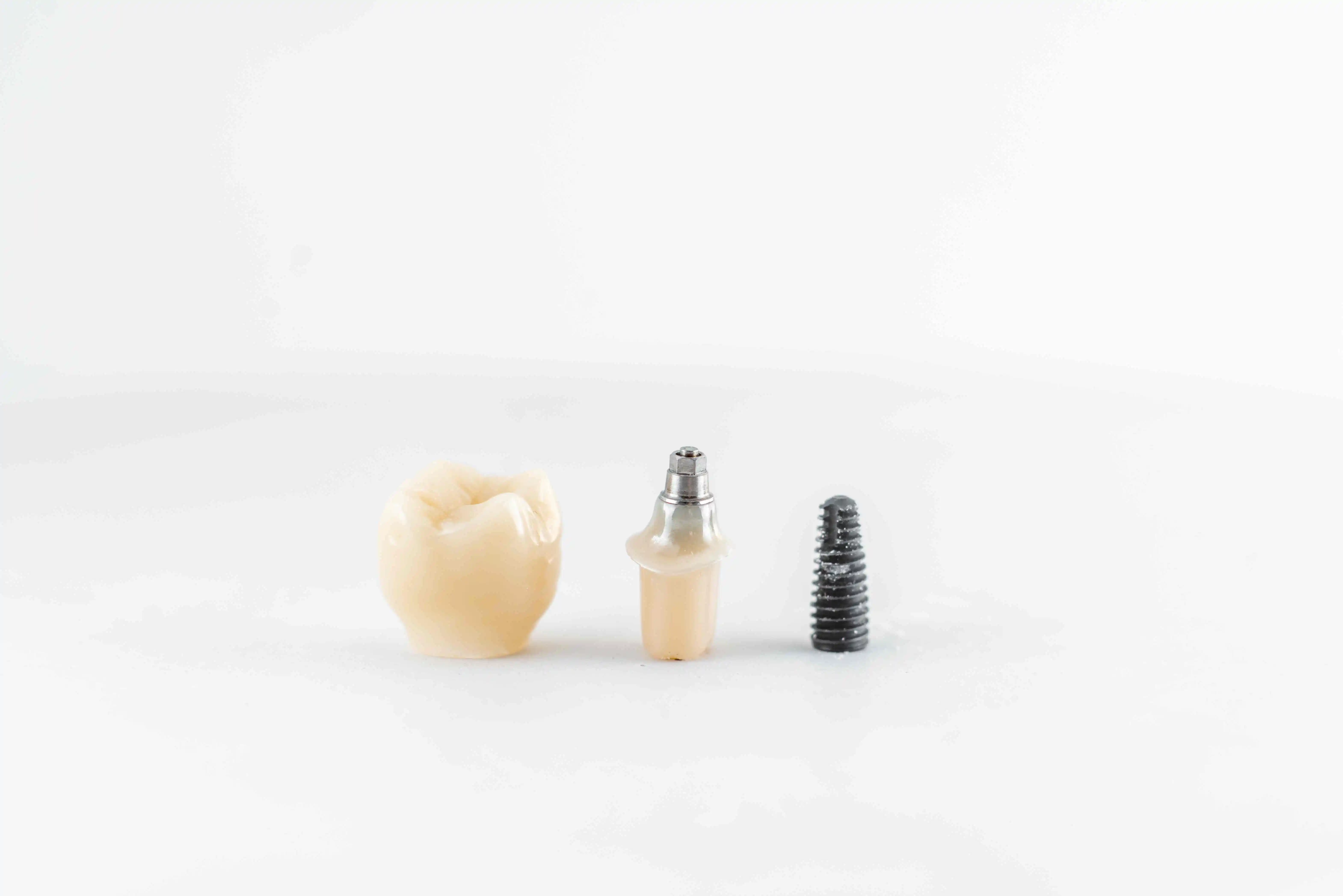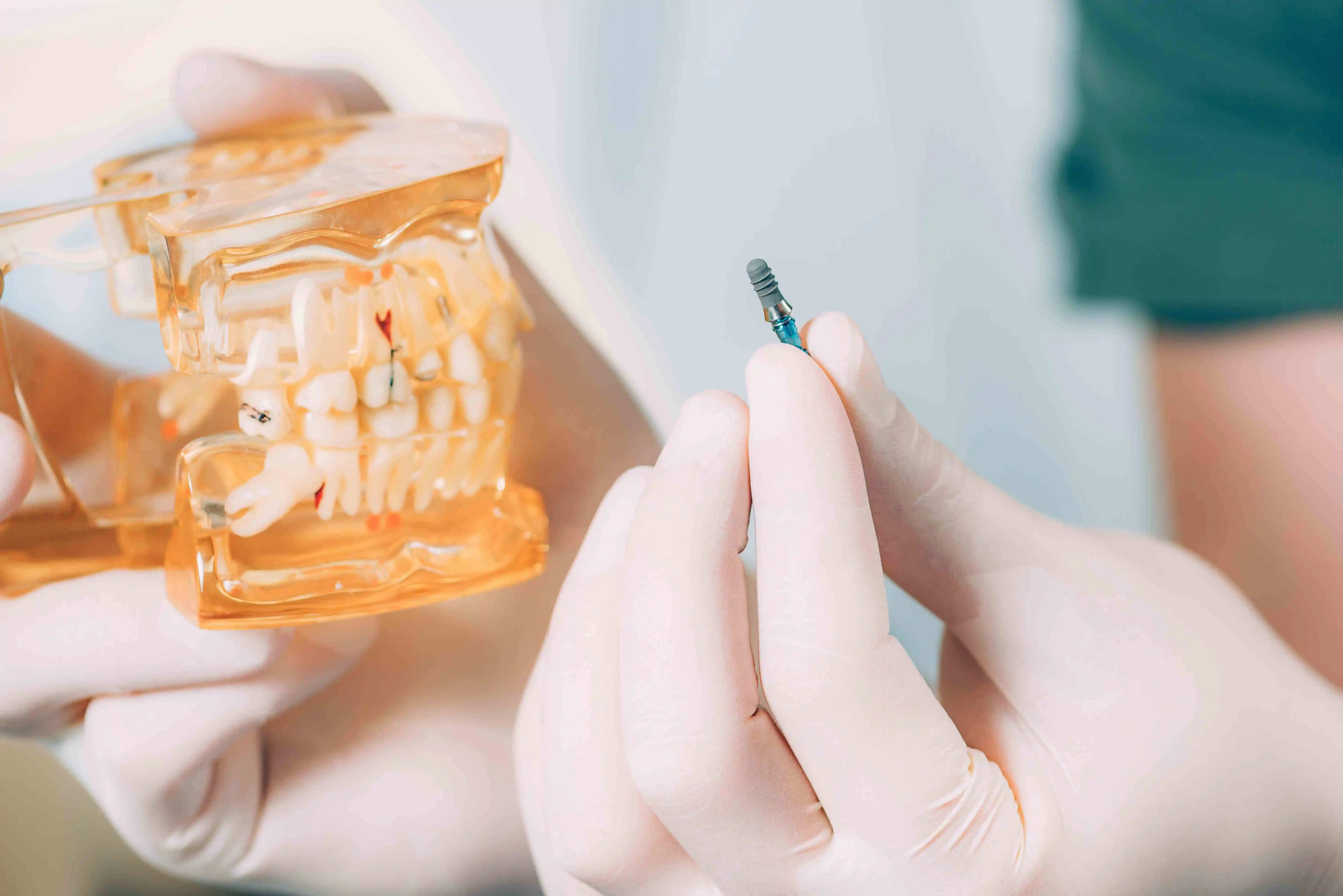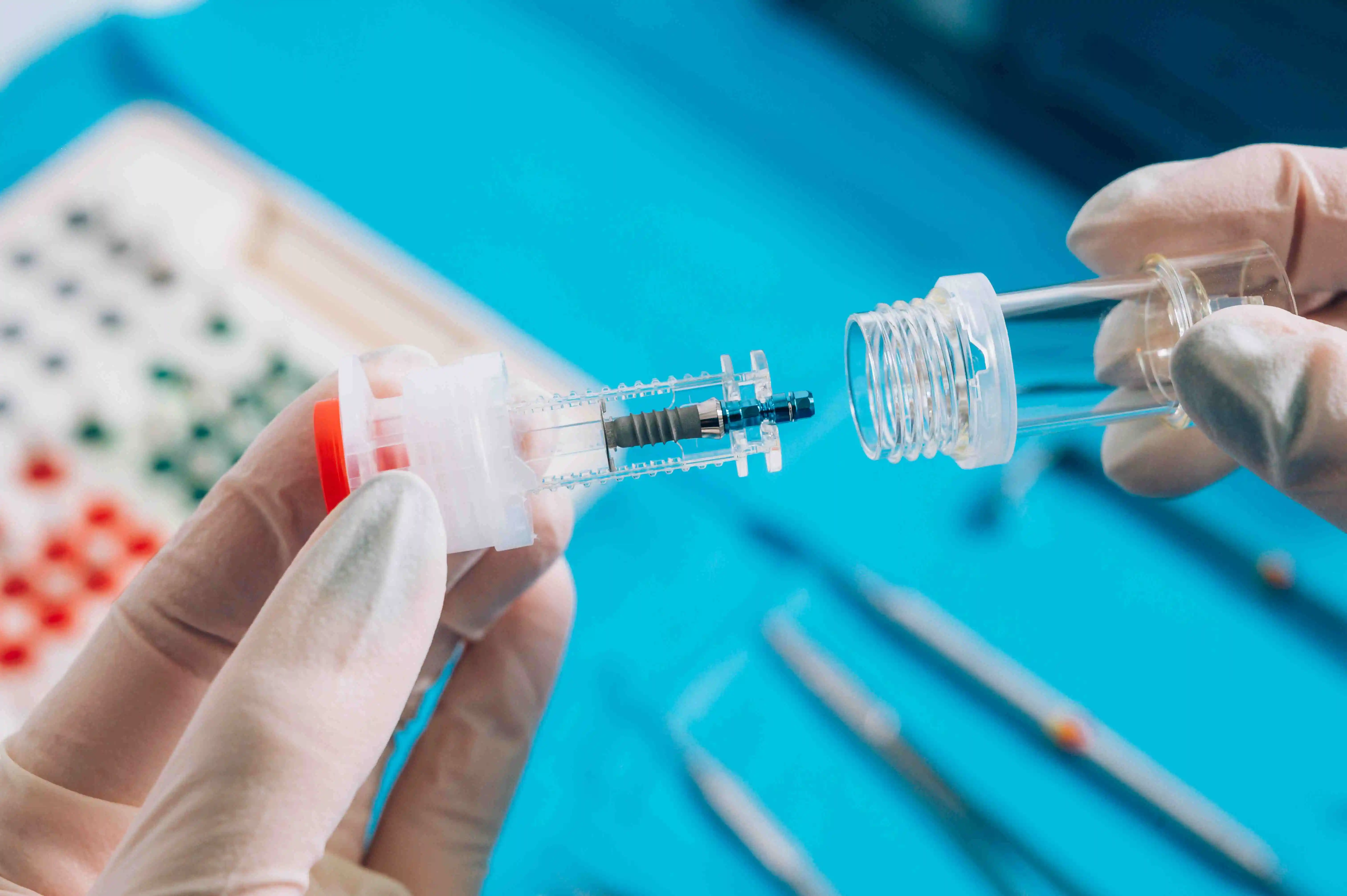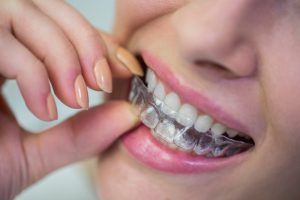Do you also have a missing tooth? And it’s making you conscious of your appearance. Has your dentist suggested you of getting dental implants? You might be thinking about how long do dental implants last.
Many other options exist for replacing a missing tooth, but implants are the current best option due to their longevity. Let’s find out, “How long do dental implants last, what makes them last longer, what factors affect implant failure, and how to make them last longer.”
What are Dental Implants?
Dental implants are medical devices that are implanted into the jaw via surgery to restore an individual’s ability to chew or improve their appearance. These devices offer support for artificial teeth, including dentures, bridges, or crowns.
What are Mini Dental Implants

Mini Dental Implants (MDIs) are slimmer in width than other types of tooth implants. They have a diameter about the same as a toothpick of less than three millimeters.
Because of their smaller size, MDIs can be placed in areas with less available bone. Unlike regular dental implants, it’s a less invasive or more straightforward technique. To secure removable dentures, many times dentists use MDIs. They can also be used to help replace single, small teeth.
Mini dental implants (MDIs) are intended to be a long-lasting solution similar to traditional implants. Nevertheless, there is limited scientific data on the long-term effectiveness of MDIs.
A systematic review conducted in 2019 analyzed four studies on MDIs supporting a single crown. The researchers haven’t found any difference in longevity between MDIs and standard tooth implants for a follow-up of over three years or more.
How Long Do Dental Implants Last?

Dental implants are attached directly to the jawbone, bonding with surrounding bone tissue through osseointegration. After the completion of osseointegration, the material of the implant and the surrounding bone have fused. After forming a solid foundation for a prosthetic tooth, the implant can serve as an artificial tooth root.
Dental implants are one of the most reliable procedures for replacing a missing tooth. Various studies have reported a 90-95% success rate of dental implants over a period of 10 years.
Why Do Dental Implants Last So Long?
Why do dental implants last longer compared to other tooth replacement options? The reason is their design. An implant is an artificial tooth and root system consisting of an implant root, an abutment, and a crown.
The implant root is a titanium post like a screw. Its root is surgically placed in the jaw bone. Titanium is a biocompatible material that fuses with the bone through osseointegration. It can take a few months, but once a solid bond is formed, it may last many years.
Factors Influencing a Dental Implant Failure
Despite having staying lifetime for many people, there are many instances where tooth implants can fail too. Usually, implant failure happens when something interferes with osseointegration or the healing process.
Common Causes of Implant Failure
Insufficient Care and Maintenance
Oral hygiene is essential for your implants as well as for your teeth. Accumulation of plaque can lead to gum disease, damaging both your gums and jawbone. The collection of plaque in the vicinity of an implant is referred to as a peri-implant disease.
The early stages of peri-implant disease are reversible. However, if left untreated, it can progress to peri-implantitis, leading to implant failure.
Smoking
Smokers have more chances of failure for tooth implants. Some research indicates that overall implant failure rates are 11% for smokers, compared with 5% for nonsmokers.
Teeth Grinding
If you grind your teeth or experience occlusal trauma, it can cause a fracture of the implant, loosening or fracture of the screw, or fracture of the porcelain on the crown. The reason for this is that the constant grinding or trauma can result in slight movements of the implant, which can disrupt the osseointegration process.
Age
Dental implants may be more likely to fail in older adults. It’s because older adults may have additional medical or bone-related issues, which can result in a slower healing process.
How Often Do Implants Need to be Replaced?
The implants are designed to be permanent, but due to normal wear and tear, you need to replace the attached crown. About 50-80% of crowns need to be replaced in 15 to 20 years.
How to Make Dental Implants Last Longer?
You must perform basic maintenance tasks to make your dental implants last longer. For example:
Brush and Floss Your Teeth

Keep up with good dental hygiene habits. Dentists recommend brushing the teeth twice, and flossing once a day is recommended for all people Not only those having dental implants.
Maintaining good oral hygiene is crucial for preserving the health and longevity of your dental implant. While your implant is not susceptible to decay, preserving your other teeth and your gum health directly supports it.
Go to the Dentist Every Six Months

In order to keep your implants last longer, regular dental appointments are essential. Keeping your teeth and gums healthy will help your implant stay solid in place. These exams also identify potential issues that could jeopardize your implant, such as gum disease.
Avoid Smoking

One of the major factors that can negatively impact the health of your tooth implant is smoking. It restricts the blood flow in vessels in the gums, which can affect the healing process and osseointegration, so your implant may never solidify.
Live a Healthy Lifestyle
A healthy lifestyle is essential for your dental health and bone health. If you’ve weak bones, then your jaw may not be able to support your implant, as well as your other teeth. It is recommended to seek approval from your doctor before taking vitamins and supplements, particularly calcium and potassium, to promote bone health.
Key Takeaways
Tooth implants are designed to have a long lifespan as they fuse with your jawbone through osseointegration. However, there are various reasons why an implant may occasionally come loose. In such cases, replacing a failed implant may be possible, but other treatment options are also available. If you experience any signs of implant failure, it’s important to seek advice from specialists. You can also connect with us at appointments@norwood-dental.com or 952.467.3518. We’ll be happy to serve you.




